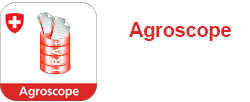The concept of integrated pest management (IPM) has proven successful, however challenges in implementing IPM strategies remain. Furthermore, detailed investigations are needed to elucidate the performance and trade-offs of combined practices along entire crop rotations. In the framework of efforts to reduce the use of pesticides in Swiss agriculture, IPM in arable crops will be further developed in an on-farm project starting in autumn 2019. The overall aim of the project is to reduce pesticide use by 75% with a maximum yield loss of 10%. Preventive and alternative practices supporting natural control of noxious organisms (pathogens, pests, weeds) such as cover crops, intercropping, flower strips and biological control agents will be implemented and investigated in different 6-year crop rotations in a network involving 75 farms. The project involves scientists, farmers and extension services in a co-innovation process in five regions of the Swiss plateau. Effectiveness of the practices on weeds, diseases, pests and beneficials will be closely monitored and evaluated along the entire crop rotation.
Wirth J., Steinger T., Vogelgsang S., Zorn A., Jeanneret P.
PestiRed: A Swiss on-farm approach to reduce pesticide use in arable crops.
In: 29. Deutsche Arbeitsbesprechung über Fragen der Unkrautbiologie und -bekämpfung. 3.-5. März, Hrsg. Henning Nordmeyer, Lena Ulber, Braunschweig. 2020, 290-294.
Download englisch (203 kB)
Link: Tagungsband
Digital Object Identifier (DOI): https://doi.org/10.5073/jka.2020.464.044
Publikations-ID (Webcode): 43815 Per E-Mail versenden










